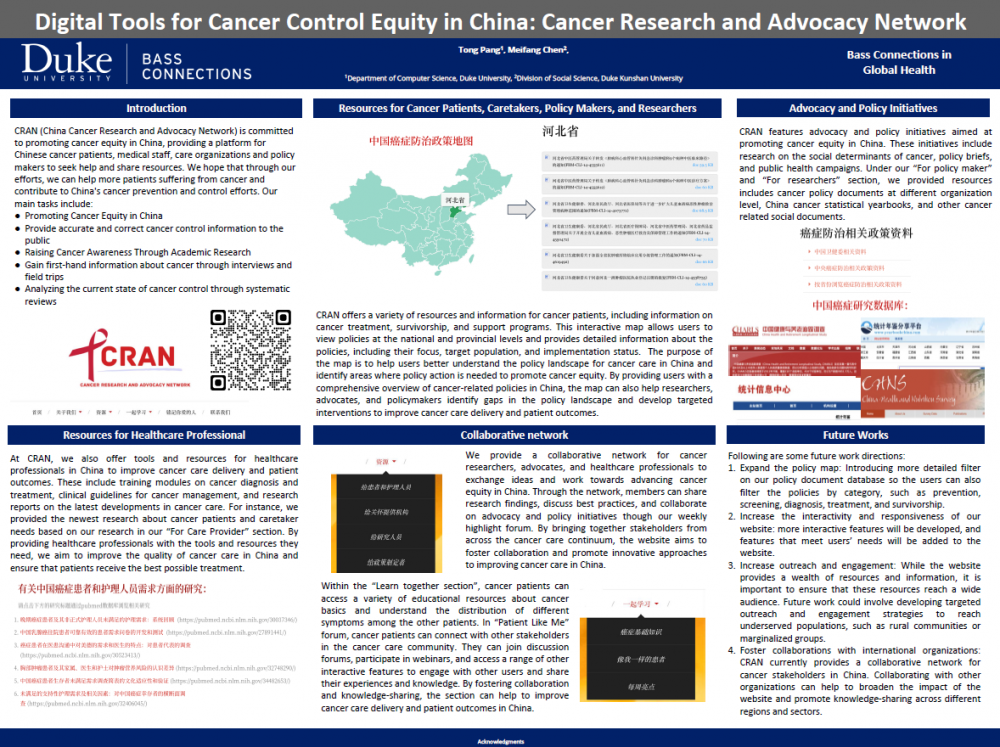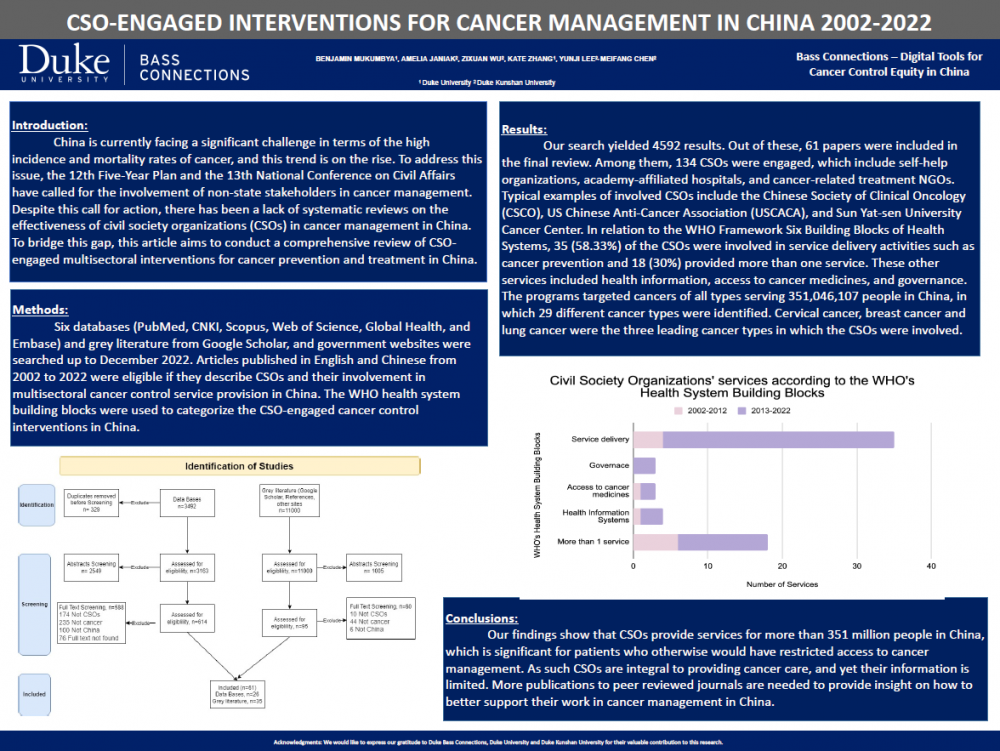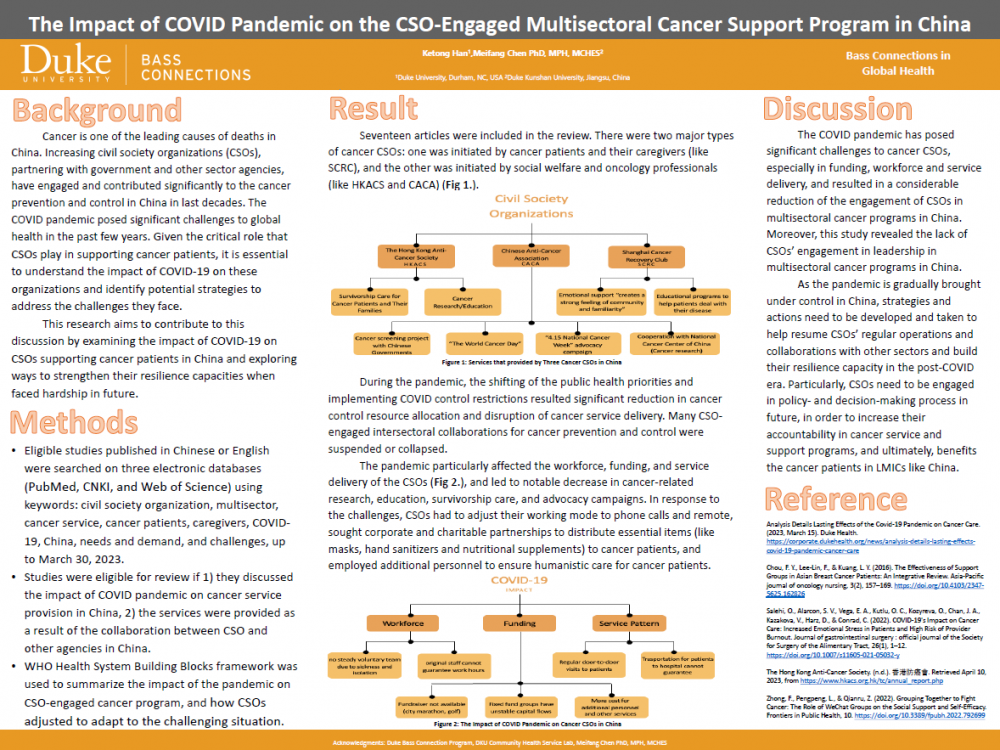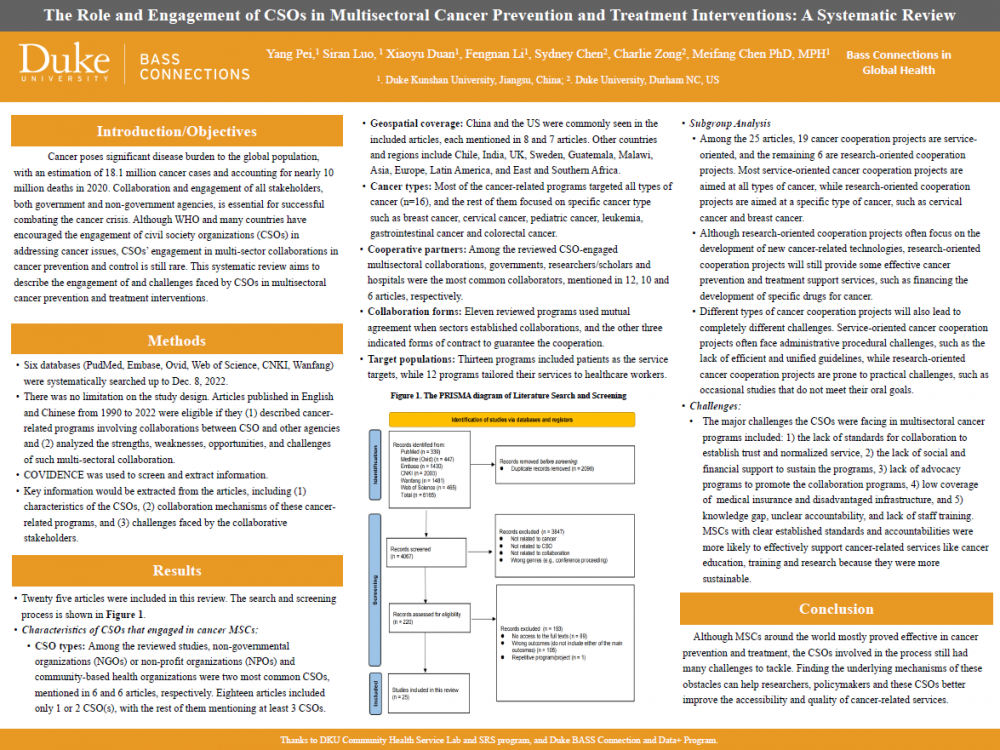Digitizing China's Fight Against Cancer
Project Team
Cancer is one of the leading causes of death globally. According to the GLOBOCAN2020 report, China accounted for 24% of all newly diagnosed cancer cases and 30% of the deaths worldwide. Moreover, there were significant cancer morbidity and mortality disparities across different regions and subpopulations in China. The primary goal of this project was to design and develop an interactive, participatory and evolving website that presents a comprehensive picture of cancer burden, disparities and practices in China to aid cancer prevention and control advocacy and research.
Specifically, the team used Geographic Information System (GIS) and web-based tools to organize cancer-related data, visualize cancer disparities, digitize policy and intervention documents, map current resources for cancer prevention and care, and better understand cancer experiences and challenges from different stakeholders’ perspectives by conducting interviews in China. Much of their work also focused on the engagement of civil society organizations (CSOs) in the country’s fight against cancer.
Digital Tools for Cancer Control Equity in China: Cancer Research and Advocacy Network
Poster by Violet Pang and Meifang Chen
CRAN (China Cancer Research and Advocacy Network) is committed to promoting cancer equity in China, providing a platform for Chinese cancer patients, medical staff, care organizations and policymakers to seek help and share resources. This team aimed to help more patients suffering from cancer and contribute to China’s cancer prevention and control efforts. Their main tasks included: 1) promoting cancer equity in China; 2) providing accurate and correct cancer control information to the public; 3) raising cancer awareness through academic research; 4) gaining first-hand information about cancer through interviews and field trips; and 5) analyzing the current state of cancer control through systematic reviews. At CRAN, they also offered tools and resources for healthcare professionals in China to improve cancer care delivery and patient outcomes.
CSO-Engaged Interventions for Cancer Management in China 2002-2022
Poster by Benjamin Mukumbya, Amelia Janiak, Zixuan Wu, Kate Zhang, Yunji Lee and Meifang Chen
China is currently facing a significant challenge in terms of the high incidence and mortality rates of cancer, and this trend is on the rise. To address this issue, the Chinese government adopted the 12th Five-Year Plan and the 13th National Conference on Civil Affairs, which call for the involvement of non-state stakeholders in cancer management. Despite this call for action, there has been a lack of systematic reviews on the effectiveness of civil society organizations (CSOs) in cancer management in China. To bridge this gap, this subteam conducted a comprehensive review of CSO-engaged multisectoral interventions for cancer prevention and treatment in China.
The Impact of the COVID-19 Pandemic on the CSO-Engaged Multisectoral Cancer Support Program in China
Poster by Ketong Ha and Meifang Chen
Cancer is one of the leading causes of deaths in China. Increasing partnerships between civil society organizations (CSOs) and government agencies have contributed significantly to cancer prevention and control in China in last decades. However, the COVID-19 pandemic posed significant challenges to global health in the past few years. Given the critical role that CSOs play in supporting cancer patients, it is essential to understand the impact of COVID-19 on these organizations and identify potential strategies to address the challenges they face. This research aimed to contribute to this discussion by examining the impact of COVID-19 on CSOs supporting cancer patients in China and exploring ways to strengthen their resilience capacities when faced hardship in future.
The Role and Engagement of CSOs in Multisectoral Cancer Prevention and Treatment Interventions: A Systematic Review
Poster by Yang Pei, Siran Luo, Xiaoyu Duan, Fengnan Li, Sydney Chen, Charlie Zong and Meifang Chen
Cancer poses significant disease burden to the global population, with an estimated 18.1 million cancer cases and accounting for nearly 10 million deaths in 2020. Collaboration and engagement of both government and non-government agencies is essential for successfully combating the cancer crisis. Although the World Health Organization and many countries have encouraged the engagement of civil society organizations (CSOs) in addressing cancer issues, CSO engagement in multi-sector collaborations in cancer prevention and control is still rare. This systematic review aims to describe the engagement of and challenges faced by CSOs in multisectoral cancer prevention and treatment interventions.




